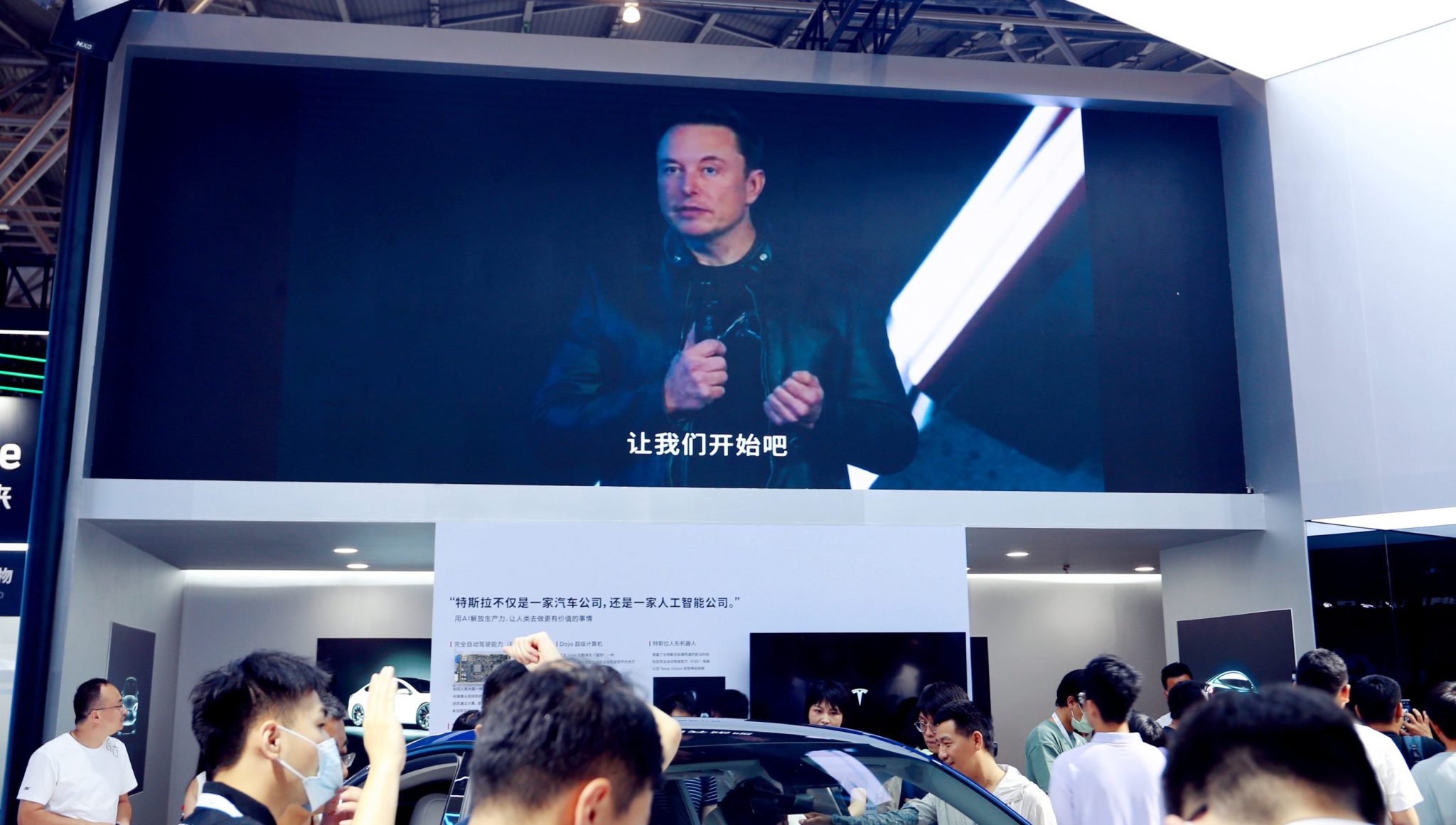
There seemed to be a truce in the brutal price war between Tesla and its Chinese competitors—but it may be over before it has even begun.
Tesla, along with 15 other automakers, made the promise at China Auto Forum in Shanghai on Thursday. The U.S. company was the only foreign firm in the lineup, which otherwise included EV-focused companies like BYD and Nio, and legacy auto manufacturers like Geely and SAIC Motors.
Part of that pledge was a promise to support China’s “core socialist values" and bear "the heavy responsibility of maintaining steady growth," according to a Bloomberg translation of the (nonbinding) agreement. The automakers also agreed not to “exaggerate or use false publicity” and “disrupt fair competition with abnormal pricing."
The promise to avoid “abnormal” pricing signaled a truce in a fierce price war between Tesla and its Chinese competitors, in response to slowing sales in the giant Chinese market. In October, the company started a months-long series of price cuts that has lowered the cost of some models by up to 14%.
Tesla’s price cuts reverberated around the whole industry. By May, over a quarter of cars sold in China had seen a price cut of at least 10,000 yuan ($1380), according to Bloomberg.
China’s Ministry of Industry and Information Technology, which helped broker Thursday’s agreement, seems to have taken a dim view of the price war. One official at the ministry called the price cuts “reckless,” according to the Financial Times.
However, Tesla did not stick with the government-facilitated truce on price cuts for long. On Friday, one day after it pledged to avoid "abnormal pricing," the company announced a new cash rebate of $480 to some Chinese customers of its newest model, reports Reuters.
Tesla did not immediately respond to a request for comment.
'Socialist values'
Beijing is increasingly leaning on the private sector to support its social agenda. In March, president Xi Jinping called upon private entrepreneurs and firms to “share the fruits of growth” as part of his “common prosperity” drive, referring to a campaign to lower income inequality launched in 2021.
Regulators are also pushing the concept of “core socialist values,” a collection of twelve terms that constitute Beijing’s official understanding of the country’s model of socialism. Officials have reprimanded companies for allegedly failing to uphold these values, such as by offering content that poked fun at Beijing or encouraging behavior officials considered dangerous or immoral.
Earlier this year, China ordered developers of generative A.I. products (similar to OpenAI’s ChatGPT, which is not available in the country) to submit their products for a security review and to ensure they uphold “core socialist values."
China, Tesla, and Elon Musk
China plays a key part in Tesla’s business, serving as both the home for its Shanghai Gigafactory as well as a major market for the company in its own right. The Shanghai plant produced over half of Tesla’s cars in 2022.
Tesla is one of the few foreign companies to succeed in China’s increasingly competitive EV market. It just trails BYD, backed by Warren Buffett and Berkshire Hathaway, which has won over consumers with its affordable cars.
BYD delivered over 250,000 cars in June, while Tesla delivered 94,000 China-made vehicles (though that figure includes cars manufactured for export). BYD’s total includes both fully electric cars and plug-in hybrids.
Musk has been relatively more friendly to China than several of his peers. The Tesla CEO visited China in June, where he met senior Chinese officials and the CEO of battery manufacturer Contemporary Amperex Technology Co. (CATL)
“China’s going to be great at anything it puts its mind to,” Musk said in a video message Thursday to the World Artificial Intelligence Conference in Shanghai. “I think China will have very strong A.I. capacity.”







